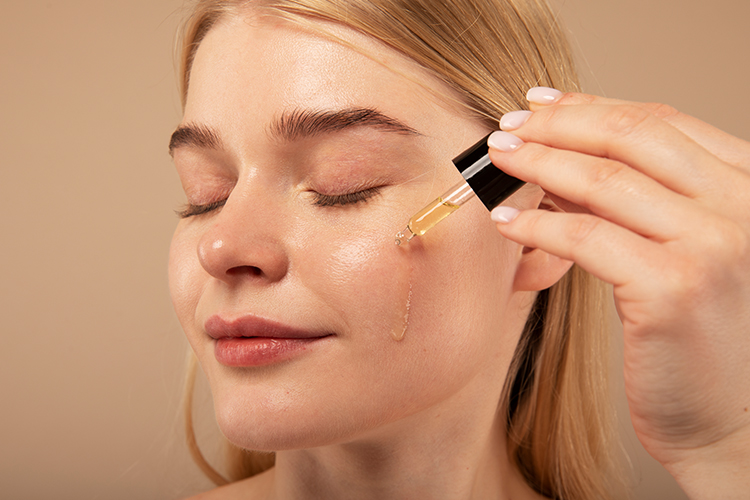
Cosmetic products made for skincare always offer us bright promises. As living conditions have become more exhausting and people have become more aware of skin health, the cosmetics and skincare industry continues to grow every day. Every product we see on supermarket shelves claims to offer the magic key to youth and beauty. In contrast, there are also products that have truly never lost their popularity over the years. The collagen component is always an indispensable part of skincare routines. K-Beauty, or Korean Beauty trends, are one of the factors that brought collagen creams, masks, and serums to the forefront worldwide. So, do products containing collagen really provide benefits for skin health and beauty? Dr. Lida Çiteli, a Medical Aesthetic Doctor who serves her patients and clients in Istanbul, explained what you need to know about collagen products.
What Is Collagen and Why Is It So Important?
Collagen is one of the most fundamental and indispensable building blocks of human skin. We owe the plumpness, elasticity, and firmness of our skin to collagen fibers. However, as we age, our body's natural collagen production also decreases. As a result of this decrease, fine lines on our skin begin to become more prominent. Afterward, our skin gradually begins to lose its elasticity and volume. This is followed by sagging and hollowing of our skin. Collagen production in the body decreases by an average of one percent each year after the mid-twenties. This is why people want to compensate for this collagen loss through the skincare products they use.
The collagen component is not a new phenomenon for skincare routines. For many years, collagen injections have been applied for smooth skin and plump lips. However, today they have been replaced by hyaluronic acid-based dermal fillers because their effects are short-lived and they can rarely cause an allergic reaction. Today, collagen is found in many care products, from serums to masks and face creams. Whether such products really increase the amount of collagen in the body is still a subject of debate.
The Truth About Collagen Creams
Experts agree on this view regarding skincare products containing collagen: Collagen products that are not injected directly into the lower layers of the skin do not trigger the skin's collagen production. The reason for this is the large structure of collagen molecules. When applied topically to the skin, collagen cannot pass through the epidermis layer due to its large molecules and cannot affect the deeper layers of the skin. These products give the skin a superficial feeling of moisture, softness, and plumpness. To trigger the skin's collagen production, one must resort to medical aesthetic treatments.
In contrast, it cannot be said that collagen creams are completely ineffective. Especially collagen molecules broken down into small pieces act much better on the skin surface. This supports the person's skin barrier, compensates for moisture loss, and provides a soft and smooth skin appearance.
However, for long-term results, active ingredients that will support the skin's collagen production should be preferred through medical aesthetic treatments. For example, Vitamin C, Retinoids, peptides, and other growth factors activate the skin's natural collagen production mechanism. Therefore, people who are looking for real rejuvenation of their skin should consult a medical aesthetic doctor and benefit from active ingredients.
Creams, Supplements, or Clinical Treatments for Collagen?
Today, oral collagen supplements are at least as popular as skincare products containing collagen. However, which one is more beneficial is a much-debated topic. Some experts argue that orally taken collagen supplements are digested in stomach acid and become ineffective before they can even reach the skin. In contrast, some clinical studies show that they can significantly increase skin elasticity and moisture.
On the other hand, medical aesthetic applications such as radiofrequency therapy, laser treatments, and microneedling stimulate the skin's collagen production. These treatment methods create controlled damage on the skin. Afterward, the skin activates its own repair mechanisms to fix this damage, and as a result, collagen production increases.
In conclusion, collagen creams or collagen-containing products sold on the market create a powerful moisturizing effect for the skin. They give the skin a superficial and temporary plumpness and can make the person look healthy. However, it is beneficial not to have unrealistic expectations from these products. If you desire a structural improvement in your skin, you can consult a medical aesthetic doctor.



